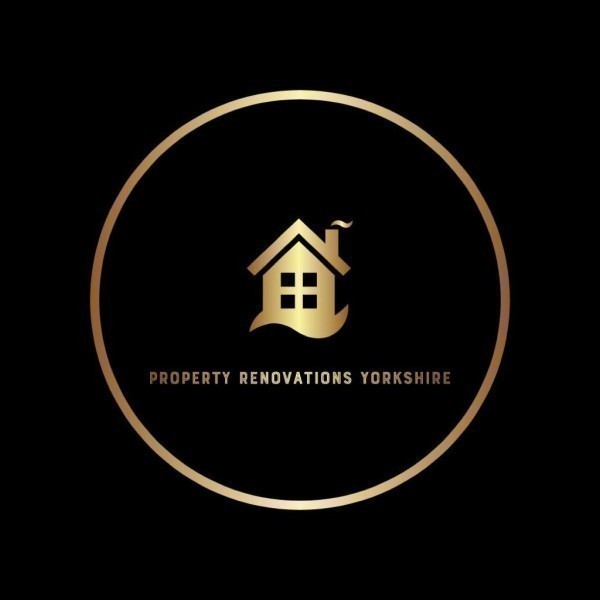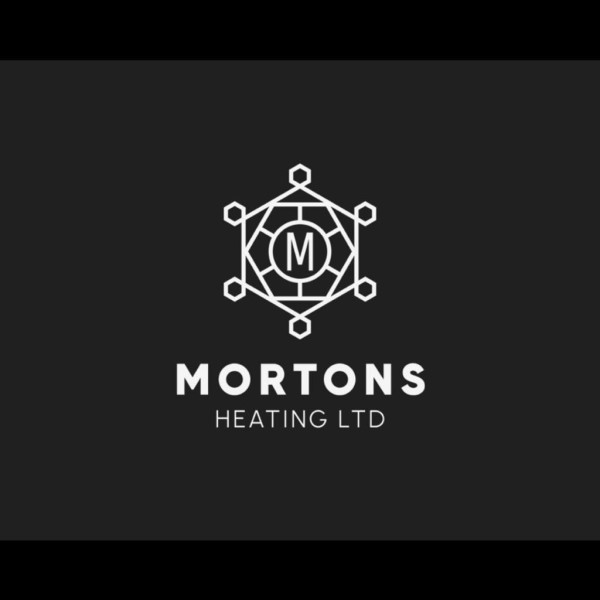Boiler/Heating Engineers in Royston
Welcome to IGS Ltd, your premier choice for expert tradespeople services in Sheffield and across South Yorkshire. Specialising in plumbin... read more »
Welcome to Property Renovations Yorkshire, your go-to experts for all your home improvement need... read more »
Edgeford Plumbing and Heating is a reputable Brinsworth-based business, proudly serving the South Yorkshire area with to... read more »
Morrisroe Gas Services is a reputable business based in Stanley, proudly serving the West Yorkshire area with top-notch... read more »
Interior Form Installations Ltd is a premier tradespeople service provider based in Westfield, proudly serving the vibra... read more »
Welcome to LMK Plumbing & Heating Services, your go-to experts for plumbing and heating solutions in Wrenthorpe and throughout West Yorks... read more »
Welcome to Mortons Heating LTD, your go-to experts for all things boiler and heating in Bolton Upon Dearne and throughout South Yorkshire... read more »
Welcome to Total Trade Solutions, your premier choice for tradespeople services in Boothroyd, West Yorkshire. With nearly two decades of... read more »
Welcome to Platinum Plumbing Heating & Bathrooms Ltd,... read more »
Welcome to C&G Plumbing and Heating Services, your tr... read more »
Welcome to John Powney Plumbing and Heating Ltd, your... read more »
Welcome to Hatfield Associates, your go-to experts fo... read more »
Welcome to Home Utility Group Limited (HUG), your tru... read more »
Welcome to Askern Plumbing & Heating, your trusted ex... read more »
Welcome to Pro-jett, your go-to experts for all thing... read more »
Welcome to MPR Plumbing and Heating, your trusted exp... read more »
Welcome to Clifford Heating Services Ltd, your go-to... read more »
Welcome to Stephen H Holgate, your trusted Boiler and... read more »
Welcome to Heateam Ltd, your trusted partner for all... read more »
Search Boiler/Heating Engineers in places nearby
Understanding the Role of Boiler/Heating Engineers in Royston
Boiler and heating engineers play a crucial role in ensuring the comfort and safety of homes and businesses in Royston. These skilled professionals are responsible for installing, maintaining, and repairing heating systems, ensuring they operate efficiently and safely. With the chilly UK winters, having a reliable heating system is essential, and that's where these engineers come into play.
The Importance of Boiler and Heating Systems
Boilers and heating systems are the heart of any building's comfort. They provide warmth during cold months and ensure hot water is available for daily needs. In Royston, where temperatures can drop significantly, a well-functioning heating system is not just a luxury but a necessity. Boiler and heating engineers ensure these systems are in top condition, preventing breakdowns and ensuring energy efficiency.
Types of Heating Systems
- Combi Boilers: These are compact units that provide both heating and hot water without the need for a separate water tank.
- System Boilers: These require a cylinder for storing hot water but don't need a water tank, making them ideal for homes with limited space.
- Conventional Boilers: Also known as regular or traditional boilers, these require both a cylinder and a tank, suitable for larger homes with high water demand.
Qualifications and Skills of Boiler/Heating Engineers
To become a boiler/heating engineer in Royston, one must possess specific qualifications and skills. These professionals typically undergo rigorous training and apprenticeships to gain the necessary expertise. Key qualifications include:
- Gas Safe Registration: This is a legal requirement for anyone working with gas appliances in the UK.
- NVQ/SVQ Level 3 in Heating and Ventilation: This qualification demonstrates a high level of competence in the field.
- Apprenticeships: Many engineers start their careers through apprenticeships, gaining hands-on experience under the guidance of seasoned professionals.
Essential Skills
- Problem-Solving: Engineers must diagnose and fix issues efficiently.
- Attention to Detail: Precision is crucial when dealing with complex systems.
- Customer Service: Engineers often interact with clients, requiring excellent communication skills.
Services Offered by Boiler/Heating Engineers in Royston
Boiler and heating engineers in Royston offer a wide range of services to meet the diverse needs of their clients. These services include:
- Installation: Engineers install new boilers and heating systems, ensuring they are set up correctly and safely.
- Maintenance: Regular maintenance is crucial for the longevity and efficiency of heating systems. Engineers perform routine checks and servicing.
- Repairs: When systems break down, engineers diagnose the problem and carry out necessary repairs to restore functionality.
- Upgrades: Engineers can upgrade existing systems to more energy-efficient models, helping clients save on energy bills.
Choosing the Right Boiler/Heating Engineer in Royston
Selecting the right engineer is vital for ensuring quality service and peace of mind. Here are some tips for choosing the best boiler/heating engineer in Royston:
- Check Credentials: Ensure the engineer is Gas Safe registered and has the necessary qualifications.
- Experience: Look for engineers with a proven track record and positive reviews from previous clients.
- Get Quotes: Obtain multiple quotes to compare prices and services offered.
- Ask for Recommendations: Word of mouth is a powerful tool; ask friends and family for recommendations.
Energy Efficiency and Environmental Impact
With growing concerns about energy consumption and environmental impact, boiler/heating engineers in Royston are increasingly focusing on energy-efficient solutions. Modern boilers are designed to be more efficient, reducing energy consumption and lowering carbon footprints. Engineers play a key role in advising clients on the best systems to meet their needs while being environmentally conscious.
Benefits of Energy-Efficient Systems
- Cost Savings: Reduced energy consumption leads to lower utility bills.
- Environmental Benefits: Lower carbon emissions contribute to a healthier planet.
- Improved Performance: Energy-efficient systems often provide better heating and hot water performance.
Common Issues and Troubleshooting
Despite regular maintenance, heating systems can encounter issues. Boiler/heating engineers in Royston are adept at troubleshooting common problems, such as:
- No Heat or Hot Water: This could be due to a faulty thermostat, broken diaphragm, or airlocks.
- Leaking and Dripping: Leaks can occur due to corrosion or a broken component.
- Kettling: This refers to a banging noise caused by limescale build-up in the heat exchanger.
- Radiator Issues: Cold spots on radiators may indicate trapped air or sludge build-up.
Safety Considerations
Safety is paramount when dealing with heating systems. Boiler/heating engineers in Royston adhere to strict safety standards to protect clients and their properties. Key safety considerations include:
- Carbon Monoxide Detection: Engineers ensure that systems are properly ventilated to prevent carbon monoxide leaks.
- Regular Inspections: Routine checks help identify potential hazards before they become serious issues.
- Emergency Procedures: Engineers are trained to handle emergencies, ensuring swift and safe resolutions.
The Future of Heating Systems in Royston
The heating industry is evolving, with new technologies and innovations shaping the future. Boiler/heating engineers in Royston are at the forefront of these changes, embracing advancements such as smart thermostats and renewable energy sources. These innovations promise to make heating systems more efficient, cost-effective, and environmentally friendly.
Emerging Technologies
- Smart Thermostats: These devices allow users to control heating remotely, optimising energy use.
- Heat Pumps: An alternative to traditional boilers, heat pumps use renewable energy to provide heating and hot water.
- Hydrogen Boilers: These are being developed as a low-carbon alternative to natural gas boilers.
Frequently Asked Questions
- What qualifications should a boiler/heating engineer have? Engineers should be Gas Safe registered and have relevant qualifications like NVQ/SVQ Level 3 in Heating and Ventilation.
- How often should I service my boiler? It's recommended to service your boiler annually to ensure it operates efficiently and safely.
- What are the signs of a faulty boiler? Common signs include no heat or hot water, strange noises, and leaks.
- Can I install a boiler myself? No, boiler installation should be carried out by a qualified engineer to ensure safety and compliance with regulations.
- What is the lifespan of a boiler? Most boilers last between 10 to 15 years, but regular maintenance can extend their lifespan.
- Are there eco-friendly heating options available? Yes, options like heat pumps and hydrogen boilers are environmentally friendly alternatives to traditional systems.
In conclusion, boiler/heating engineers in Royston are indispensable in maintaining the comfort and safety of homes and businesses. Their expertise ensures that heating systems operate efficiently, providing warmth and hot water when needed. As technology advances, these engineers continue to adapt, offering innovative solutions that meet the demands of modern living while being mindful of environmental impacts.
Send a message












